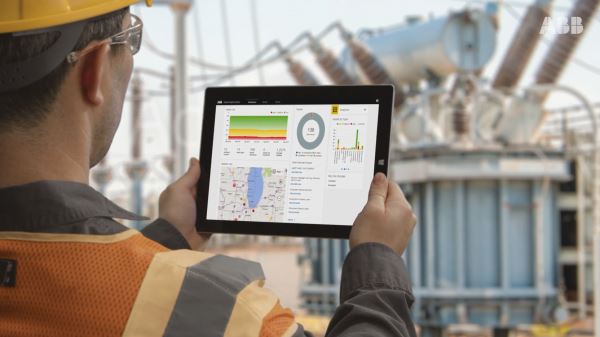To keep up in today's fast-paced business environment organisations across the globe are recognising the need to adopt new digital technologies.
The Fourth Industrial Revolution has brought with it a digital transformation. Tomorrow’s supply chains will be faster and smarter.
Digitalisation and automation are crucial to maintaining competitiveness – and more companies are scrambling to become digitalised.
The main purpose of digitalisation is to equip your business with the necessary tools to meet the needs of your customers.
So, what is digitalisation and why do you need it?
Basically, digitalisation is the use of digital technologies to change a business model and provide new revenue and value-producing opportunities. It encompasses all aspects of business.
It’s all about the collection of data. But how do you best analyse and use that data? That’s the key.
Through digitalisation you can seamlessly weave together processes, systems, customers, partners and employees and become the ultimate connected business.
It delivers many benefits to both consumers and companies, and significantly improves the way in which companies understand and engage with their customers.
Setting the pace for the Fourth Industrial Revolution
As well as improving service delivery, a digital business model can boost productivity while maximising safety and energy efficiency.
ABB, a technology leader in the digital world, is setting the pace for the Fourth Industrial Revolution.
At a special industry event in Melbourne last week, ABB launched a ground-breaking new technology platform to help organisations transform smoothly to a digital environment.
ABB Ability integrates ABB’s vast digital portfolio of services and solutions into one unified package.
This innovative new platform enables organisations to monitor, analyse and optimise their entire operation through digitally connected devices, equipment, systems and solutions.
It connects customers to the Industrial Internet of Things (IoT) and most importantly turns data insights into direct action for the benefit of end-users.
Massive explosion in data
“The digitalisation revolution means we are getting this massive explosion in the amount of data that is available from equipment,” says Simon De Bell, ABB’s Country Business Development Manager.
That data is being generated by a broad cross section of industries and organisations including manufacturing, utilities, data centres, mining, oil & gas, waste and transport industries.
“But it’s not just recognising that the number of data points are increasing,” says Mr de Bell.
“What is critical is how you pull the data together and analyse it in a way that you can make sensible decisions going forward.
It’s all about collaboration
“With ABB Ability we can pull the data together in a coherent framework and work with our customers in a collaborative way where we basically exchange ideas that enable us to get better solutions.”
The key is to not only collect the data, but to work out the best way to use that data.
“Most people think the issue is: ‘How do I get the information?’
“But the real issue is: ‘What do I do with the information’
“And that’s where ABB Ability comes in.”
Through key partnerships with Microsoft and IBM, ABB Ability enables organisations to gather information, send it to the cloud and then analyse the data to find intelligent solutions.
ABB Ability offerings are designed to work across industries. These digitally enabled industry solutions are fine-tuned based on years of sector and customer insights.
“The world is getting smaller. Data and information can now be made available 24/7 around the world, so we can now learn from other countries,” says Mr de Bell.
“The smart nations are the ones that are going to build on that information.”
How robotics is playing a key role
Robotics, artificial intelligence (AI) and automation are playing a vital role in the digital transformation of industry.
“We see robotics as a key part of the factory of the future,” says Mr Peter Bradbury, ABB Channel Manager (Robotics, Discrete Automation and Motion).
And “agile” innovative manufacturing is the key to Australia’s future.
“We are moving from mass production to mass customisation,” Mr Bradbury says.
“Robotics is one of the most flexible forms of automation. It is a great enabler for customised products, allowing businesses to do very small runs.”
Can manufacturers in Australia survive if they don’t embrace digitalisation and automation?
“Not really,” he says. “There will always be room for ‘craft’ based manufacture, but it is key for Australia’s manufacturers to embrace automation to remain competitive.”
Jobs for the future
Mr Bradbury says many companies have embraced robotics and automation in a big way and are reaping the benefits.
And despite widespread fears that the factory of future will cause mass job losses, in many cases robotics and automation has created new jobs.
“It may be taking away jobs in the Third World, but in industrialised countries we are seeing it is actually creating jobs.
“Some companies are taking their production away from developing companies and bringing it back to Australia because of improved efficiencies.”
Mr de Bell agrees.
“Robotics, automation and digitalisation are replacing the jobs that people don’t really want,” he says.
‘A transition always takes place’
People working in mundane, repetitive, production line jobs are now being retrained and equipped with new skills to best suit the modern automated workplace.
“That has been the case in every industrial revolution – a transition always takes place. Companies must move with the times or they face an economic disadvantage – and that’s not a good place to be.”
With ABB Ability clients are offered more than 210 Industrial Internet solutions.
But it is ABB’s close collaboration with its clients to find the best solutions that sets the company apart, says Mr de Bell.
A company with a rich history spanning 130 years, ABB provides a comprehensive portfolio of products for robots, drives, motors, Programmable Logic Controllers (PLCs) and safety.
For more than 40 years has been a leader in digital technology and in industrial process and automation knowledge.
With ABB Ability solutions organisations become more flexible and agile, reacting faster to any potential production issues.
“If you have equipment operating 24/7 you want to monitor the condition of that equipment early to minimise downtime,” explains Mr de Bell.
“It’s the equivalent of wearing a heart monitor when you’re running. “It will let you know if your heart rate is too high and will warn you to perhaps slow down rather than push yourself to the point of exhaustion.”
Strong focus on safety
This translates to improved productivity and energy efficiency, less downtime and significant cost savings.
Also, ABB Ability has a strong focus on safety.
“Safety is paramount,” says Mr de Bell. “And there are two elements – the safety of individuals (working with machines) and also cyber security.”
Companies must retain control over their own data and protect information from unauthorised access.
“You must ensure the network you’re putting in place is impenetrable.”
It’s not a silver bullet
Mr de Bell offers the following advice to businesses who are now moving toward digitalisation.
“You should be clear – or work with a company that can help you to understand the objectives you are trying to achieve with digitalisation.
“It’s not a silver bullet and like most projects – if you don’t quite know what you are trying to achieve – then in all probability you will not achieve the results you expect.
“The tighter people can define their objectives, the easier it is to find a solution that will actually deliver benefits.”
For more information on ABB Ability visit: www.abb.com


